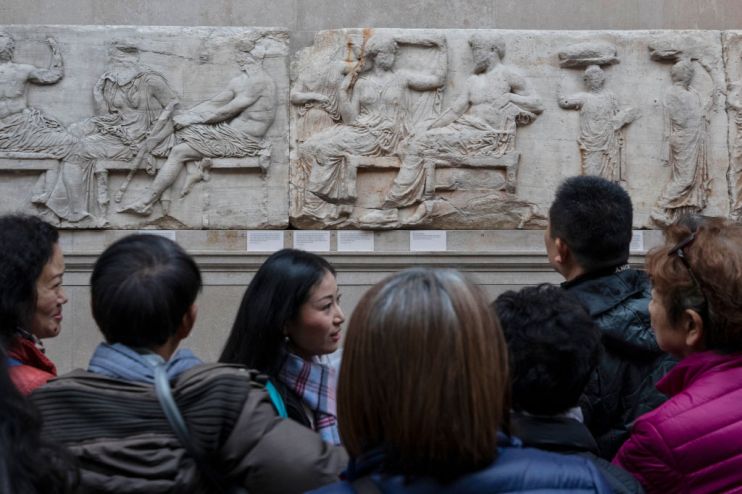DEBATE: Is there a case for Britain keeping the Elgin Marbles?

Is there a case for Britain keeping the Elgin Marbles?
Tiffany Jenkins, author of Keeping Their Marbles: How Treasures of the Past Ended Up in Museums and Why They Should Stay There, says YES.
Throughout history, art objects have passed across borders. No one is suggesting that every Italian Master belongs to the Italian government. Why, then, should we think that the Elgin Marbles belong to the Greek government?
Instead, consider where they can prompt truth and understanding.
In the British Museum, you see the marble sculptures in the context of multiple cultures and world history. Walking through the many galleries, you can appreciate how the civilisations of Egypt and Assyria as well as Persia (the enemy of ancient Athens) contributed to the great accomplishment of fifth-century BC Athens.
By looking at the similarities and differences between the artefacts from various cultures, you understand that Greek art influenced sculpture from Turkey to India, and the impact on the Roman Empire.
To appreciate the tremendous achievement that was the Parthenon — its origins and influences — the British Museum, where six million visitors gaze at the astonishing craftsmanship for free each year, is the ideal home.
Dr Tom Flynn, art historian for Flynn & Giovani Art Provenance Research, says NO.
When the Earl of Elgin removed the Marbles from the Parthenon, he disrupted an ancient narrative relating to the city of Athens. Was he granted legal permission to remove the sculptures? Debatable — this justification was based on a dubious document from the Ottoman authorities occupying Athens at that time. He was not “rescuing” them, but taking them for his personal benefit.
Elgin’s act was essentially destructive, like removing sections of the film reel of Citizen Kane and expecting it to still make sense. The New Acropolis Museum in Athens was designed to accommodate the sculptures in a beautiful gallery in sight of the monument for which they were created. The British Museum display is wilfully misleading.
The general public understand this, and unequivocally argue for return whenever a poll is taken.
At a moment when Europe needs symbols of unification rather than fragmentation, returning the Marbles to Athens would be a magnanimous gesture of cultural generosity that would resonate around the world.
Main image credit: Getty